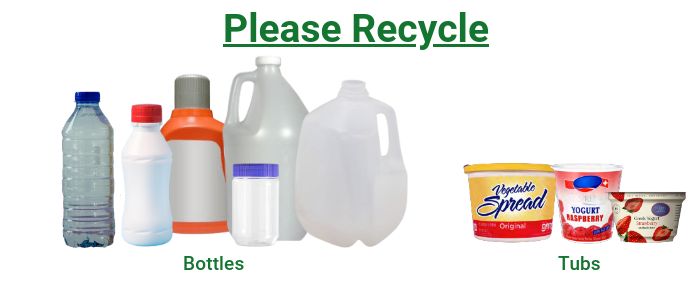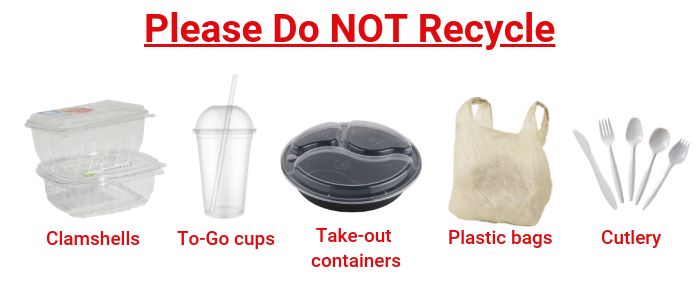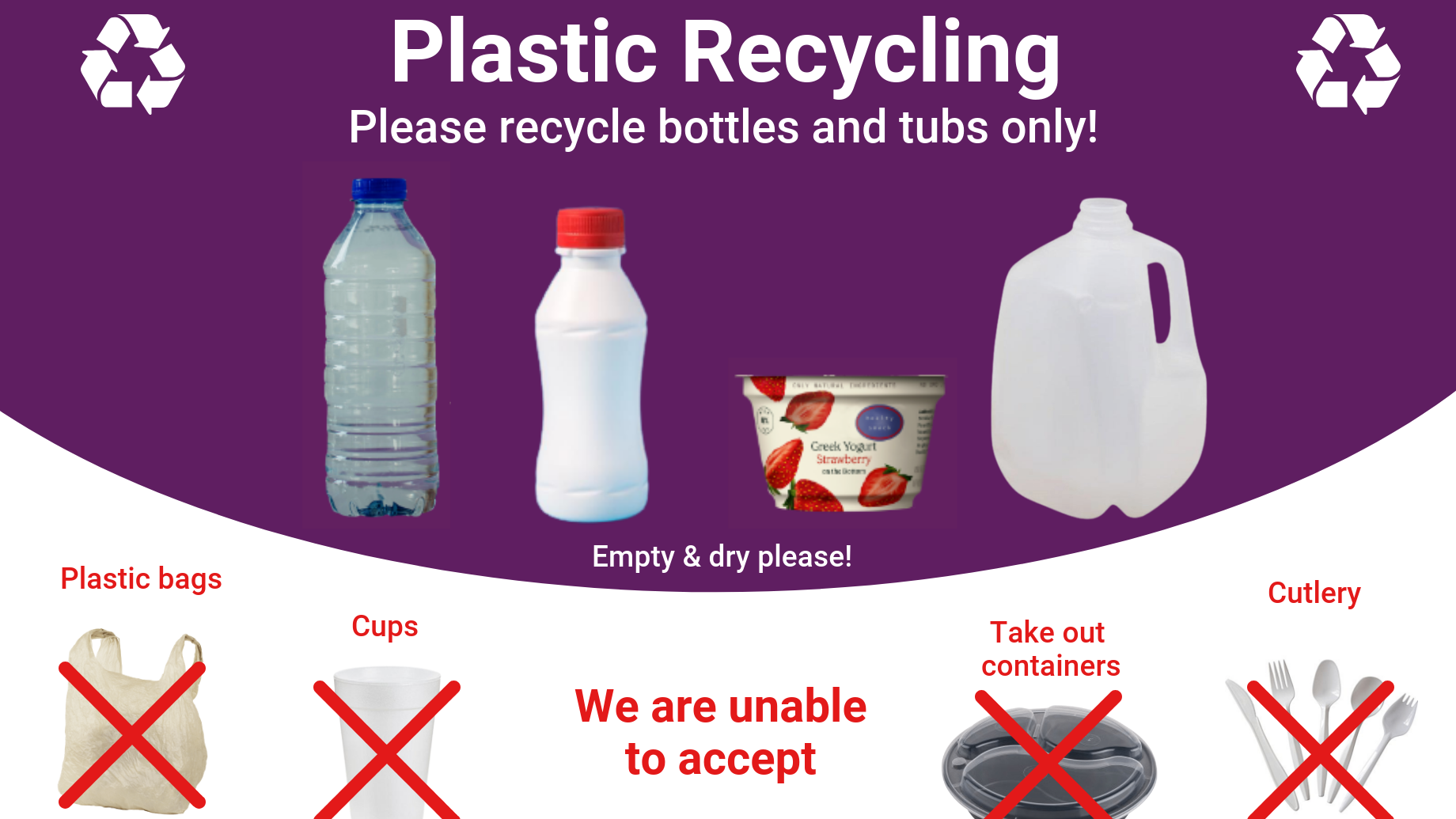Stop Recycling Plastics on Campus… Until You Read This!
Posted by Dave Smith on Sep 9th 2021
Beginning in September 2021, there's an important change to MSU Recycling's plastic recycling guidelines: we are now only accepting plastic bottles and tubs for recycling. Bottles and tubs are readily recycled and turned into a reusable material that replaces virgin materials used to manufacture new items. This change will help ensure that all the materials we accept are managed as a resource and not sent to a landfill.
Plastic you CAN recycle:
Items shaped like a bottle or tub. There's no need to look for the number on the item you want to recycle, just make sure it's a bottle or a tub.

Plastic that's NOT accepted:
Plastic cutlery, plastic bags, plastic toys, plastic containers with a hinged top (called clamshells), plastic to-go cups and plastic straws.

What's considered a bottle or tub?
To identify a bottle:
- The neck of the container is smaller than the body of the container and accepts screw-type or snap on cap closures.
- Usually contains liquids.
- Examples: water bottles, milk jugs, laundry detergent bottles
To identify a tub:
- A tub is a container that is circular, oblong, or square.
- It may have an unattached snap-on lid or cover.
- Examples: butter, sour cream, cottage cheese, yogurt containers
- NOTE: Plastic containers with a hinged top (called clamshells) that are used for takeout, prepackaged fresh fruits or vegetables, and other foods have a different chemical composition and are NOT considered tubs.
Why is this change important?
Anything other than a bottle or a tub that is put in a hallway recycling container or taken to one of our drop-off recycling bins at MSU is a contaminant and has to be hand-sorted in the Material Recovery Facility by SSRC staff. Keeping contamination low is critical to ensuring a safe working environment for our staff and reducing expenses so we can recycle more material.
To learn more, tune in for Campus Recycling 101,Thurs. 9/23 at 11 a.m. Register to receive the link to attend via Zoom.
How do I make the biggest impact with my recycling?
Recycling works best when you avoid placing contaminants in the recycle bin. There are two main types of contaminants in the recycling stream:
- items placed in the bin that aren’t accepted, and
- items that are accepted but aren’t rinsed or wiped of food/liquid residue.
"Wish-cylcers”–those who place an item in the recycling bin hoping or wishing it will get recycled—have good intentions but actually hinder the successful recycling of materials. Do your best to understand what's accepted and how to prepare it before you put it in the bin.
When in doubt, keep it out.
Don't recycle anything you aren’t certain is accepted or clean enough. Fewer contaminants in the recycling stream means accepted recyclables are processed efficiently and safely.
The classic 3 "R's"—reduce, reuse and recycle—are in that order intentionally. You can have a bigger impact by first reducing the amount of plastic items you use, then reusing plastic items you already have, and finally recycling used plastic items.
With just a few seconds of consideration, you can choose your impact on our campus environment every day!
Want to spread the word? Our Campus Recycling Guide and additional waste reduction resources are available to the MSU community. Staff and faculty are invited to join the Waste Warriors. Have questions? Contact us at recycle@msu.edu.

